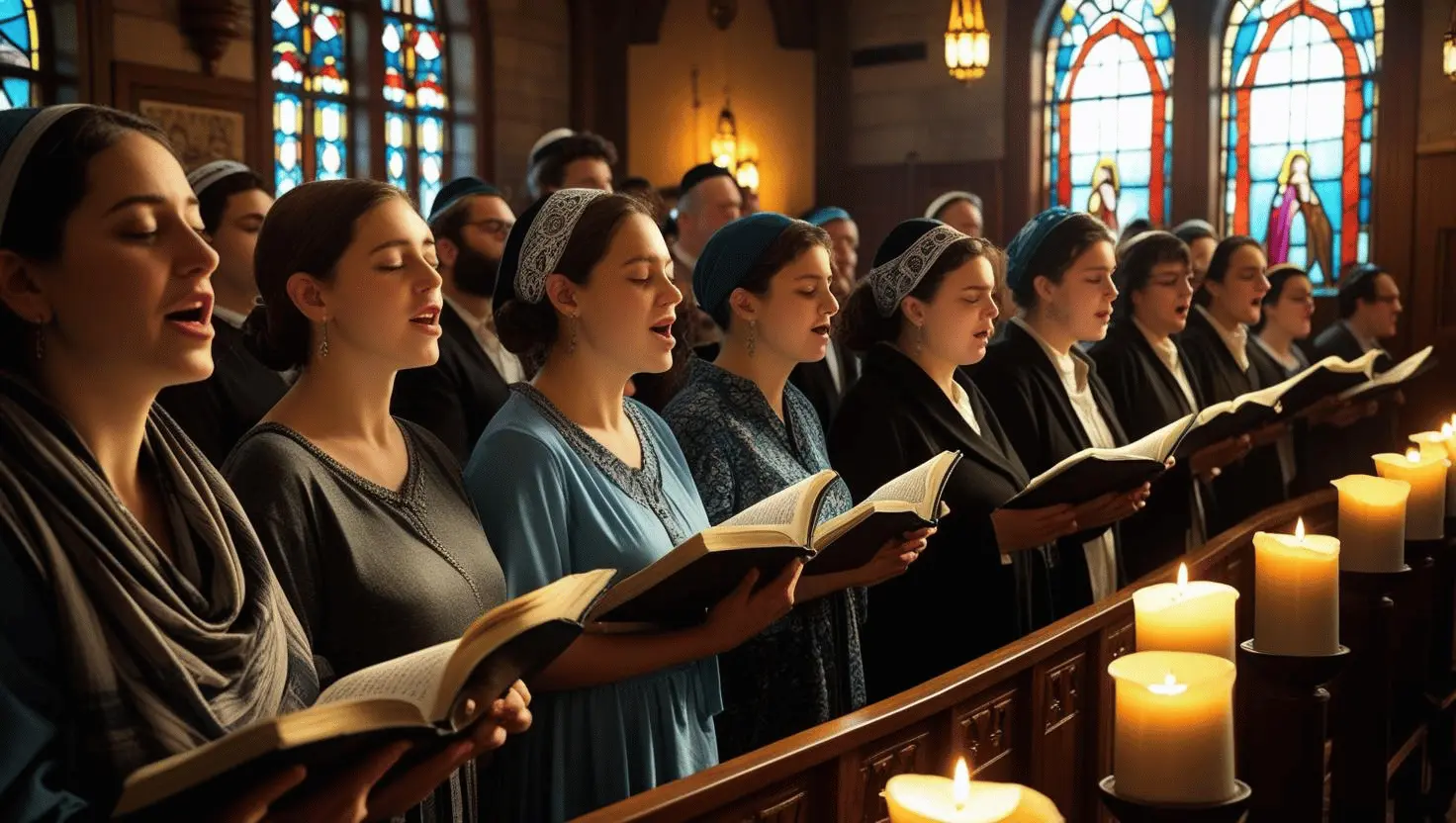The Book of Psalms, filled with songs, prayers, and poems, captures a wide range of human emotions and has been a source of comfort and inspiration for centuries. The King James Version (KJV) presents these Psalms with poetic beauty, making them timeless in their spiritual power.
Also Read: Born Again Christian or Catholic? The Shocking Truth
The Psalms in Context
1.1 Historical Context
The Psalms, with their deep emotional resonance, originated as songs and prayers for the ancient Israelites. They served as powerful expressions of worship, praise, and a plea to God, resonating with the spiritual and emotional experiences of the Israelites in both personal devotion and communal worship.
1.2 Authorship
The Psalms, a rich tapestry of voices, are mainly attributed to David, with significant contributions from Asaph, Solomon, and other figures. Each author’s unique experiences shape the themes—David’s Psalms often focus on repentance and trust, while others reflect national struggles and divine promises, offering a diverse range of perspectives.
1.3 The Psalms and Their Role in Worship
The Psalms, integral to Jewish and Christian liturgies, play a significant role in shaping worship traditions. They are used in prayers and hymns, connecting believers to the divine. In both faiths, the Psalms express deep reverence for God.
Exploring the Structure of the Psalms
2.1 Different Types of Psalms
- Praise Psalms: These Psalms focus on adoration and glorification of God for His greatness and majesty.
- Lament Psalms: Psalms that express sorrow, grief, and pleas for God’s help during times of distress.
- Thanksgiving Psalms: These Psalms offer gratitude for God’s blessings, deliverance, and provision.
- Royal Psalms: Focus on the reign of God and, in some cases, the Davidic king, emphasizing God’s sovereignty and justice.
- Wisdom Psalms: Offer moral teachings and reflections on God’s laws and wisdom.
2.2 Literary Devices in the Psalms
- Parallelism: Repeated ideas with variations to deepen meaning, creating a sense of rhythm and amplifying the emotional impact of the Psalms.
- Metaphors and Imagery: The Psalms use vivid descriptions that create emotional resonance, such as God being a shepherd or a fortress, engaging the reader’s emotions and moving them deeply.
- Repetition: Reinforces key themes and evokes a sense of rhythm and memorability, making the Psalms deeply meditative.
These literary elements, when combined, contribute to the timeless beauty and profound impact of the Psalms. Especially in the King James Version (KJV), the poetic language amplifies their emotional and spiritual weight, inspiring awe and appreciation in the reader.
2.3 Thematic Structure
- God’s Sovereignty: His supreme authority and reign over all creation.
- Human Suffering: Expressions of pain, trials, and the search for divine intervention.
- Divine Justice: Reflection on God’s righteous judgment and protection of the faithful.
- These themes provide a profound foundation for both individual reflection and communal worship.
Also Read: 10 Beautiful Bible Verses About Parents: Honor, Love & Obedience
The Psalms as a Reflection of the Human Experience
3.1 Emotions Expressed in the Psalms
The Psalms, a collection of ancient Hebrew poetry, capture a wide range of human emotions. They express joy and thanksgiving for God’s blessings, sorrow and fear in times of distress, longing for God’s presence, and hope for deliverance. This emotional breadth, rooted in the historical and cultural context of the ancient Israelites, makes the Psalms deeply relatable for all who experience the highs and lows of life.
3.2 The Psalms and the Spiritual Journey
The Psalms vividly portray the spiritual odyssey from desolation to anticipation, illustrating how individuals progress through trials towards renewal. They underscore the significance of faith in God’s promises during hardships, providing a blueprint for resilience and trust in God’s providence.
Psalms and Christian Theology
4.1 Revelation of God’s Nature
The Psalms offer a profound understanding of God’s attributes, revealing His holiness, mercy, justice, faithfulness, and love in a way that inspires reverence. Through these poetic expressions, we gain insight into God’s character and His relationship with His people.
4.2 Messianic Psalms
Certain Psalms, such as Psalm 22 and Psalm 2, point to Jesus as the Messiah. These prophetic Psalms, with their anticipation and fulfillment, foreshadow aspects of Christ’s life, suffering, and ultimate triumph, connecting the Old Testament with the New Testament in Jesus.
4.3 God’s Kingdom and Reign
The Psalms offer a picture of God’s eternal kingdom and reign, emphasizing His sovereignty over all creation. They highlight God’s righteous rule, the ultimate victory of His purposes, and His reign as King both now and forever, providing a sense of reassurance.
How to Pray Using the Psalms
5.1 Using Psalms in Personal Prayer
Incorporate Psalms into personal prayer by reading them aloud, reflecting on their message, and making them your own. This process helps deepen your connection with God and align your heart with His will, as the Psalms often express the same emotions and desires that God wants us to have.
5.2 Praying Psalms of Lament and Praise

The Psalms of Lament and Praise are not just words, but a guide in expressing your emotions in prayer. Use Psalms of Lament to express grief and seek comfort, and Psalms of Praise to thank God for His goodness. These Psalms provide a structured way to express both sorrow and gratitude, guiding you in your prayer journey.
Psalms in Worship and Liturgy
6.1 The Psalms in Jewish Worship

In Jewish worship, the Psalms, with their central role, are sung and recited not just during religious festivals, but also in daily prayers, Shabbat services, and special occasions like Passover and Sukkot. This frequent use expresses devotion, thanksgiving, and hope in God’s promises, ensuring the continuity of the tradition.
6.2 Psalms in Christian Worship
The Psalms, with their profound influence, greatly shape modern Christian worship, often forming the foundation for hymns and liturgical prayers. They are used in church services, especially during the Psalter readings, providing a way for congregations to join in praise, confession, and thanksgiving, thereby deepening their spiritual connection with God.
Understand Psalms in the King James Version (KJV)
7.1 Why the KJV Matters
The King James Version (KJV) is renowned for its majestic and poetic language, a language that has not only shaped but also united the English-speaking world in its understanding of Scripture. This global community of believers finds a timeless beauty in the KJV that resonates in both personal devotion and public worship.
7.2 Key Psalms in the KJV include a variety of themes such as praise, lament, thanksgiving, and trust. These Psalms are particularly powerful due to their profound impact on readers.
Certain Psalms in the KJV stand out for their profound impact, such as Psalm 23 (“The Lord is my Shepherd”) and Psalm 51 (“Create in me a clean heart”). These Psalms, with their deep emotional expression and spiritual insight, serve as powerful prayers that inspire and uplift us in moments of trust, repentance, and praise.
Conclusion
The Psalms remain timeless, offering comfort, hope, and reflection on the human experience. Through the King James Version, their beauty and emotional depth continue to inspire and guide believers today.
We encourage you to explore the Psalms, letting their wisdom deepen your spiritual journey and bring you closer to God.


1 thought on “Book of Psalms Meaning & Commentary (KJV Explained)”